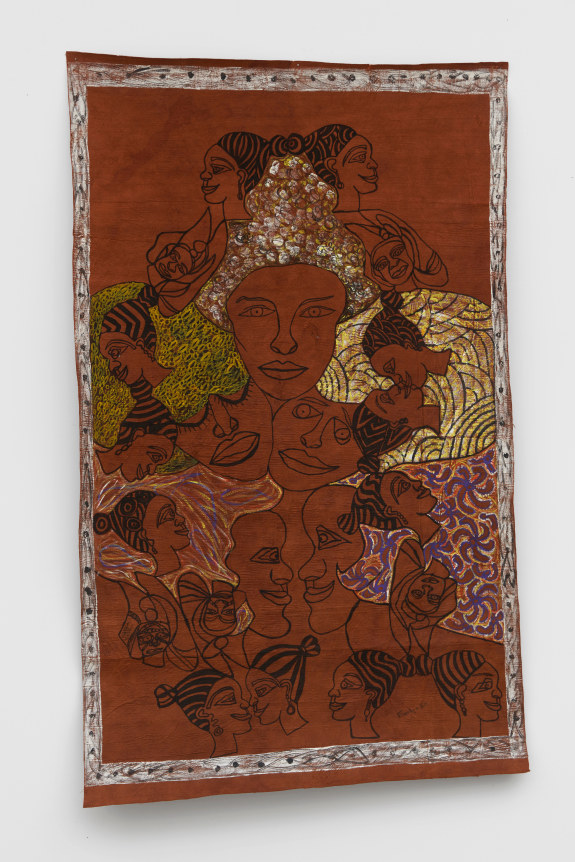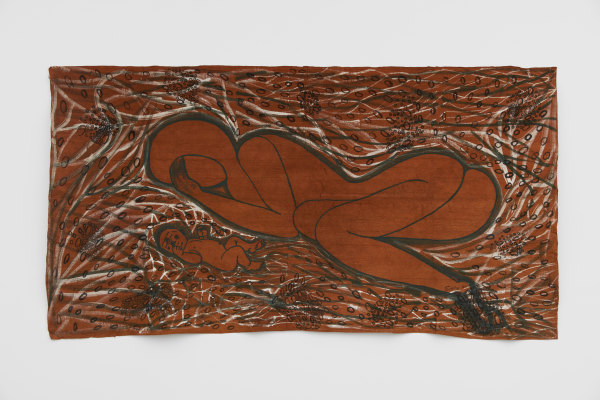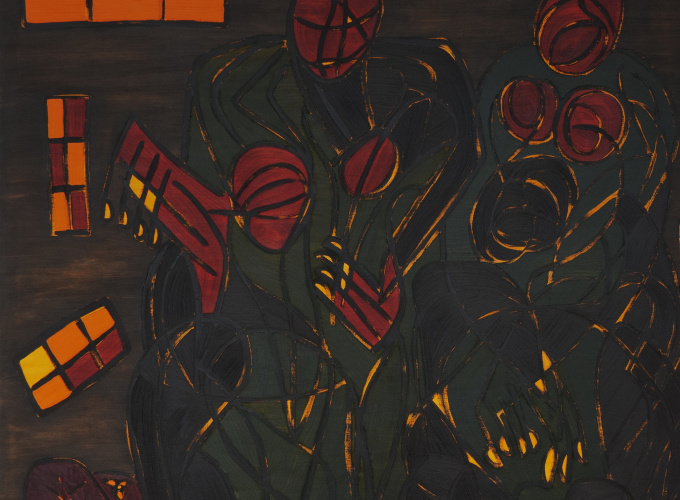
Born in Kilimanjaro, Everlyn Nicodemus relocated to Europe in the 1970s, where she would move across Sweden, France, Belgium and finally Scotland, where she currently lives and works. Her years of emigration were marked by harassment, persecution and isolation, eventually culminating in a traumatic breakdown - which she describes as a near-death experience - and the beginning of her suffering of PTSD. Drawing on personal experience Nicodemus’ work explores the universal issues of racism, cultural trauma, human suffering and the marginalization of women throughout history. Amidst the adversities, Nicodemus turns to art-making as a way of healing. She creates out of necessity, her unique body of work is a spontaneous outpouring of emotions into multiple forms: paintings, collaged books, photographs, poems and assemblages where textiles, straw and other natural materials overlap with metal wire and found objects. A recurring element in her figurative paintings is the female body, instrumental in reclaiming freedom and the lost stories of women from minority communities.
This year, the National Galleries of Scotland present an expansive retrospective of Nicodemus’ work, on view through May 25, 2025, at the Modern One; the exhibition was made possible because Nicodemus was the winner of the 2022 Freelands Award.
One of the strongest feminist voices to emerge from Eastern Africa in the last three decades, Everlyn Nicodemus is an artist, writer, and curator. Between 1994 and 2000, Nicodemus served on the advisory board of Third Text, the leading international journal dedicated to the critical analysis of contemporary art in the global field. In 2012, Nicodemus was awarded her PhD from Middlesex University following the submission of her thesis “African Modern Art and Black Cultural Trauma.” She subsequently co-edited the influential book Modern Art in Africa, Asia and Latin America: An Introduction to Global Modernism, which was published in 2012.

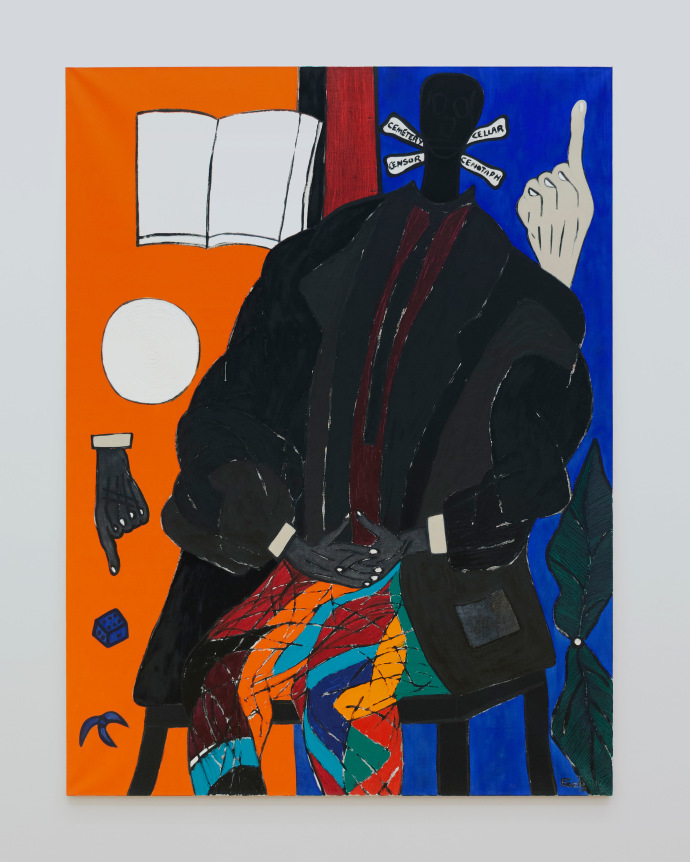
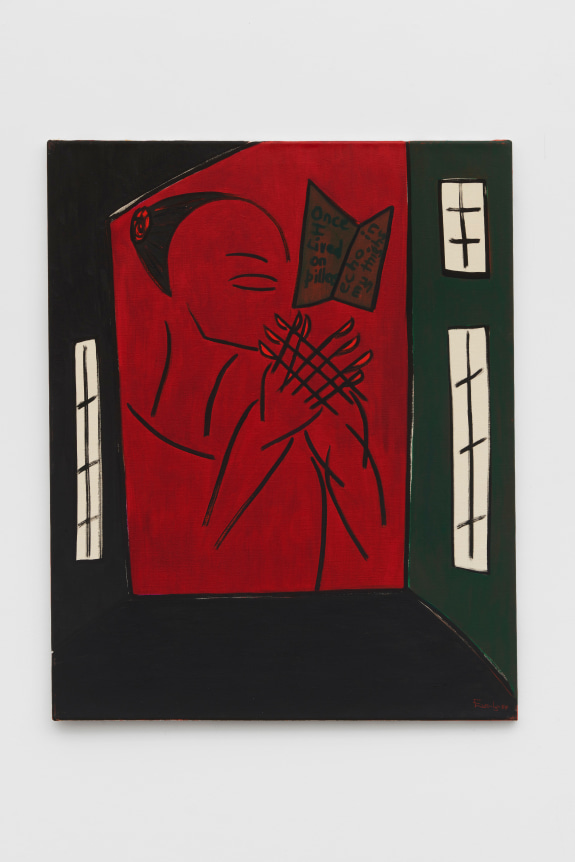
![Everlyn Nicodemus Femme Totale Still [Total Woman Still], 1987](https://img.artlogic.net/w_1438,h_862,c_limit/exhibit-e/59bff84cdca83743488b4567/5ed59456be02a0c4da64ca8d74d1aa25.jpeg)
![Everlyn Nicodemus Enfoncé [Down], 1987](https://img.artlogic.net/w_1438,h_862,c_limit/exhibit-e/59bff84cdca83743488b4567/c26d1c8d3a8a71596c9b626268f2acaa.jpeg)
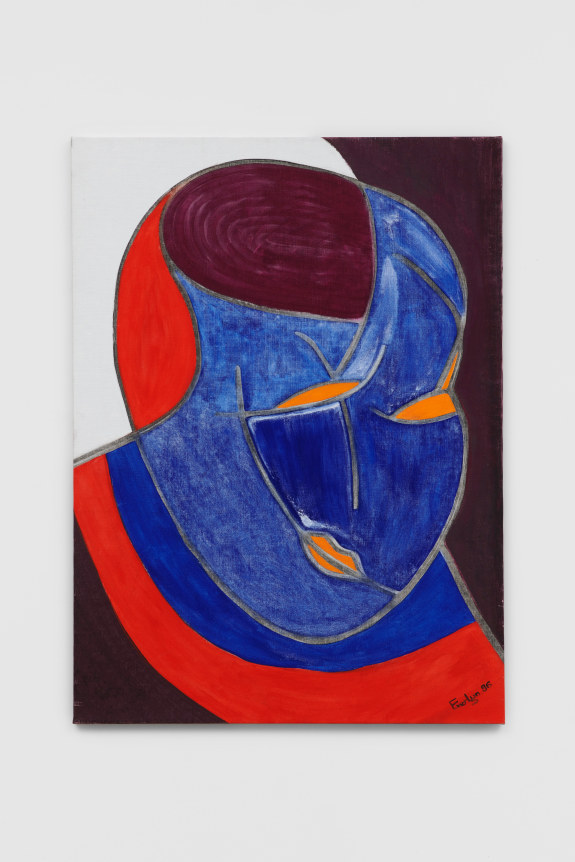
![Everlyn Nicodemus Man och Kvinna [Man and Woman], 1983](https://img.artlogic.net/w_1438,h_862,c_limit/exhibit-e/59bff84cdca83743488b4567/db08ed7894752c2a781dc90eb19788ee.jpeg)
![Everlyn Nicodemus Karneval [Carnival], 1981](https://img.artlogic.net/w_1438,h_862,c_limit/exhibit-e/59bff84cdca83743488b4567/dff5d5e2d139d5cb39ab6dbfeaadc125.jpeg)
